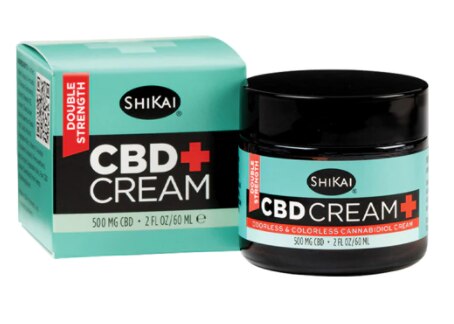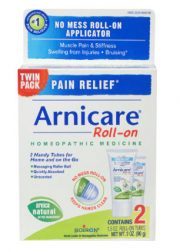If you have planned an upcoming scheduled surgery, there are many things you can do in the days or weeks before to increase your chances of a successful outcome—as well as things you can do afterwards to expedite a speedy recovery. So don’t simply wait until your surgery date. Be proactive and take these actions to be as healthy and strong as you can be. You will have a better outcome if you precondition for a surgery, which means getting super healthy starting at least a month prior to the big incision. How to do that? In a naturopathic doctor’s office, here’s how we suggest you start with a strong a foundation of health.
How to prepare for surgery
Amplify your nutrient status.
Choose high vitality foods, such as fruits, vegetables, quality fats, salads, green juices, lean protein sources (supports immunity, wound healing and maintenance of muscle mass) and whole grains high in fiber but low in gluten (which can cause inflammation in many people). Avoid dairy, sugar, sodas, chemicals/preservatives in your foods, alcohol consumption and low-quality fast foods. This approach also significantly diminishes unnecessary and dysregulated inflammation.
Increase your physical activity.
Get your blood and lymph moving with plenty of exercise that is not too much, not too little, but just right the amount to increase your circulation and create strong and flexible muscles. Choose yoga, light weight training, Pilates, an elliptical trainer or a treadmill for examples of moderate exercise. Or go on hikes so that you can inhale a lot of fresh air and forest bathe at the same time. Forest bathing exposes you to not only fresh air but also to all kinds of plant chemicals floating through the air which can enhance your overall health and wellness.
Detox to the extent you are able.
Help your cells get their debris out so that nutrients can go in. Sweating is a great place to start: Opt for any hot sauna, or uplevel and go for an infrared sauna, which helps your body escort all kinds of modern chemicals out of your system. Regular bowel movements help your liver and whole GI system discharge toxins. Use a skin brush (dry brushing) to promote lymph flow and drainage. Lymph nodes are the pump-less vessels that collect debris all over your body and dump lymph fluid back into your venous system, part of the circulatory system.
Take stock of your mindset.
This is where the rubber meets the road, as in where the emotional body/spirit body meets the physical body. If you’re constantly bathing your brain in bad news, and surrounding yourself with anxiety-filled movies, books and friends, it’s time to do a good clean out of the mental toxins that fill your neurons. Instead, focus on what is good, happy and nourishing in your life. See how that shifts perspective on many profound and subtle levels. Mental health also includes getting enough rest and relaxation, including sleep. Remember that your brain literally detoxifies itself when you sleep.
Take supplements up until just 5 days prior to your surgery.
You don’t want to risk any interference with the anesthesia or inadvertently increasing bleeding times. I recommend up to five days prior to surgery: Take vitamin D 1,000 IU a day, zinc 50 mg a day with food, calcium and magnesium (800 mg calcium + 400 mg magnesium), and a good multivitamin (without iron unless you’re anemic). An excess of iron can cause increased inflammation which could mitigate healing.
I would also add in to the mix vitamin C 1,000 mg twice a day, vitamin E 400 IU a day, and fish oils (omega 3 fats rich in EPA and DHA) to support connective tissue and healthy cell membranes. Five days prior to surgery, stop taking all supplements unless your doctor is OK with you continuing minerals such as calcium/magnesium and zinc. Supplements that can increase bleeding times (by thinning your blood) includes vitamin E, fish oils, garlic, curcumin (from turmeric) and ginger.
Post-surgery protocol tips
Ask your surgeon when you can resume supplements. Once you have had your surgery, some patients will be released that same day, and within 24 hours it is usually safe to resume your normal supplemental routine such as fish oil, vitamin E, etc.
- Curcumin, 500 mg twice a day. Curcumin is associated with a healthy inflammatory response in the body. Note that curcumin should not be taken by those on blood thinning medications.
- Vitamin D, take 1,000 IU a day or more. if you have low vitamin D levels, consider a higher dosage. Vitamin D functions as a powerful immune regulator.
- Vitamin C, take 1,000 mg twice a day. Vitamin C helps support collagen formation.
- Vitamin E, take 400 IU a day of mixed tocopherols. Vitamin E helps protects cell membranes from oxidative stress.
- Centellia Asiatica, Gotu kola, take 100 mg twice a day. This staple of Ayurvedic medicine is a botanical that can support connective tissue health.
- Calcium 800 mg + Magnesium 400 mg per day. It’s best to take calcium 400 mg + magnesium 200 mg twice a day with food.
Once you are through the woods and well on your way to recovery, consider continuing your strong foundation of health you started during the precondition phase. Why not make it a permanent lifestyle change? There is nothing like being in vibrant health almost all the time. It’s easier than you think when you make the right choices to support your body, mind and spirit. It mainly requires basic action items like eating good food, moving your body, detoxifying and making positive choices for your mind.
If you do need to get surgery in the future, know that any illness can be a “wake up call” to take stock of what is happening in your life. It can also be a catalyst for you to make healthy changes so that you not only recover from surgery faster, but perhaps even prevent having other surgeries in the future.




